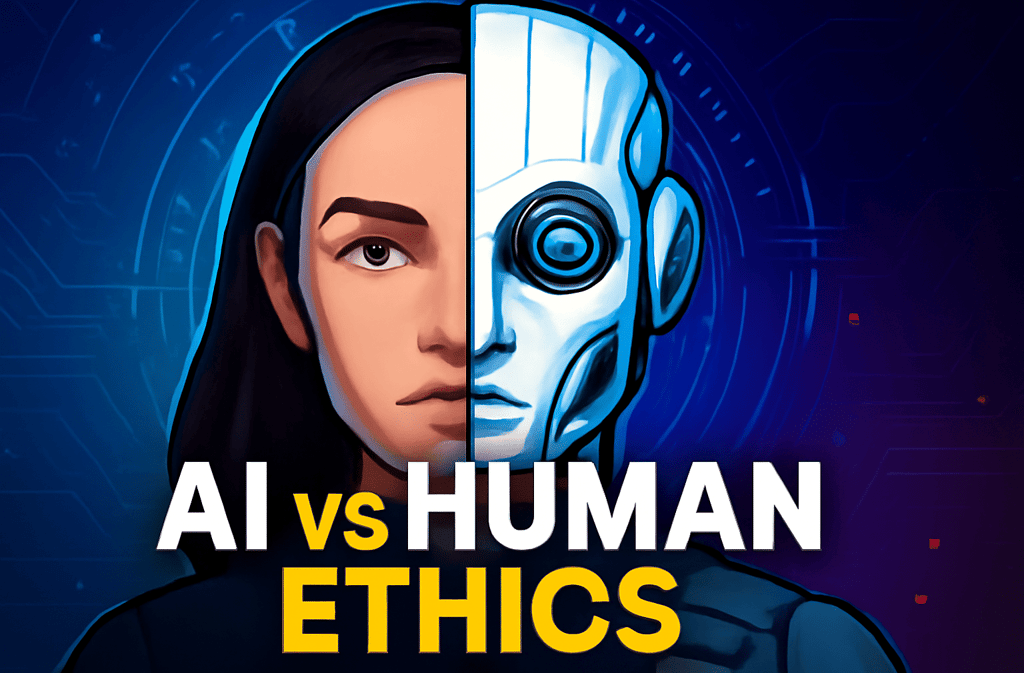AI vs Human Ethics: Can Machines Really Be More Responsible?
Artificial Intelligence (AI) is no longer just a futuristic dream—it’s deeply integrated into our daily lives. From personalized recommendations on Netflix to self-driving cars, AI is shaping how we live, work, and interact. But as its influence grows, so does the most pressing question of our time: Can machines be more responsible than humans?
AITRENDINGTECH
Neurotainment
8/18/20252 min read


Understanding AI and Responsibility
Responsibility involves judgment, accountability, and moral reasoning—qualities traditionally linked to humans. But AI systems are not conscious beings; they are tools powered by data, algorithms, and human-trained models.
For AI to act "responsibly," it depends on:
Data quality: Biased or incomplete data leads to unfair decisions.
Algorithms: The logic that determines outcomes.
Human oversight: Developers, policymakers, and users who set the rules.
So the real debate is not whether machines can be responsible, but whether they can outperform humans in being consistent, unbiased, and transparent in decision-making.
Where AI Might Be More Responsible
AI has certain advantages that humans often lack:
Zero Emotional Bias
Unlike humans, AI doesn’t make decisions based on anger, fear, or personal prejudice. For instance, an AI-based hiring system (if well-designed) can evaluate resumes based on skills and merit, avoiding decisions influenced by unconscious human bias.Data-Driven Judgments
AI can analyze massive amounts of information much faster than humans, leading to more rational and evidence-based decisions in areas like medical diagnosis or fraud detection.Consistency and Scalability
Humans often make inconsistent choices depending on mood, fatigue, or environment. AI, when trained properly, can apply the same ethical framework consistently across millions of cases.
Where AI Might Fail Ethically
Despite its advantages, AI has serious limitations:
Bias in Data
AI reflects the data it is trained on. If previous human decisions were biased, the AI can amplify that bias—such as racial profiling in predictive policing systems.Lack of Moral Intuition
Humans can reflect, empathize, and make exceptions based on context. AI lacks empathy and often struggles with complex moral dilemmas, like prioritizing lives in a self-driving car accident scenario.Accountability Gap
If AI makes a mistake, who is responsible? The developer, the user, or the machine? This legal and ethical “black hole” is still unresolved.
Humans vs. AI: Who Should Lead?
While AI can theoretically outperform humans in areas of consistency and fairness, it should not operate without human oversight. Responsibility is not just about accuracy—it’s about values, empathy, and wisdom. Machines can assist us, but the moral compass must remain human-driven.
The real goal should not be to replace human responsibility, but to build hybrid systems—where AI’s efficiency and objectivity complement human values and ethical reasoning.
Building Ethical AI: The Way Forward
To ensure AI systems act responsibly, we need:
Transparent Algorithms (open review of how AI makes decisions)
Ethical Frameworks (align AI with human rights and fairness standards)
Accountability Policies (legal systems assigning responsibility clearly)
Human-AI Collaboration (machines assist, humans decide critical moral outcomes)
So, can machines be more responsible than humans?
The answer is both yes and no. AI can eliminate many human flaws like bias and inconsistency, but it lacks compassion, judgment, and moral grounding. Responsibility must ultimately remain a human duty, with AI serving as a powerful tool for enhancing fairness and precision.
As we shape the future of Artificial Intelligence, our challenge is to ensure that machines don’t just become smart, but also aligned with the best of human values. Because in the end, responsibility isn’t just about making the right decision—it’s about making the right decision for the right reasons.
